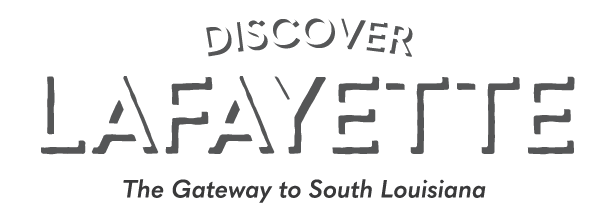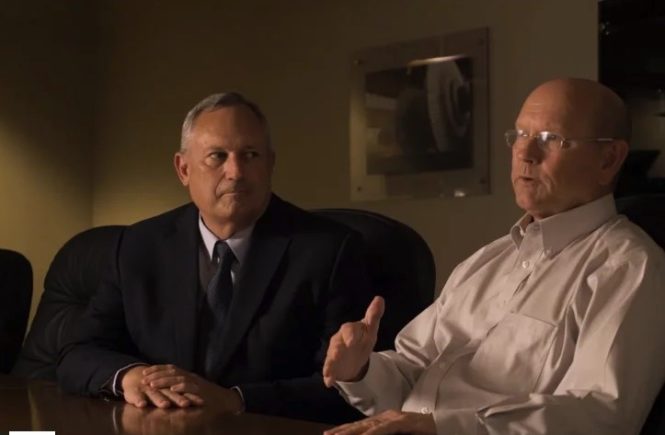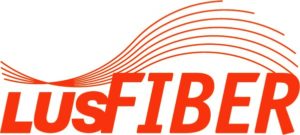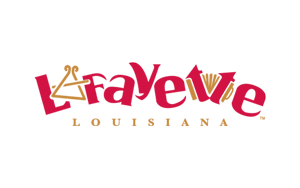Podcast: Play in new window | Download (Duration: 55:18 — 126.6MB)
In this second part of Discover Lafayette’s focus on the history of LUS fiber, immediate past City-Parish President Joey Durel, and attorney Pat Ottinger, discuss the hurdles that had to be overcome in creating Louisiana’s only 100% municipally owned broadband fiber network. Mayor-President Joel Robideaux opens the show and discusses the many benefits fiber offers Lafayette in the areas of traffic control and drainage, as well as the economic driver it has become.
“Fiber to the Home” defines the legacy of Joey Durel’s twelve-year administration. Durel trusted Terry Huval’s judgment and experience and had decided to keep him on as Director of Lafayette Utility System when he assumed office in 2004. Even before Durel took office, Huval approached him with the bold recommendation to create a community-owned broadband network. While Durel questioned the wisdom of competing with private enterprise, he knew that jobs and economic development were the keys to the success of our community.
Durel had served as Chair of the Chamber of Commerce in 2001 and had a good sense of what made Lafayette “tick.” When LUS had to replace its microwave communications system for its substations in 1998, the Chamber pushed for LUS to utilize a fiberoptic ring around the city which would upgrade the utility’s level of service and eventually be utilized for other purposes. The infrastructure’s groundwork had already begun and could now be expanded to businesses and residents alike. Durel pledged to Huval that his administration would pursue bringing this fourth “utility,” Fiber to the Home, to the City of Lafayette until they reached a hurdle that couldn’t be crossed. Huval’s integrity, dedication to the community, and the ability to bring about a successful result, all played key roles in Durel’s decision.
Pat Ottinger was serving as Durel’s City-Parish Attorney. While he had never served as a government attorney, Ottinger brought the crucial level of expertise and legal acumen needed for the many hurdles that the team did, in fact, face. The fiber initiative presented a unique set of learning curves that had to be overcome early in the Durel administration. The first challenge was in 2004, Durel’s first year in office, at the Louisiana legislature when the incumbent internet providers had legislation introduced to place limits on municipally-owned internet providers, which law is known as the “Fair Competition Act.” The law sets forth parameters, including the mandate to hold a referendum to allow the public to vote on the initiative, and prohibiting the local government from cross-subsidizing repayment of bonds with tax dollars. Randy Haynie, a local governmental relations expert, was instrumental in guiding LCG through the process, and the act was passed in a manner which allowed LUS to enter the field of providers.
City of Lafayette voters overwhelmingly supported the fiber initiative in a bi-partisan effort, and in 2005, voted 62% to 38% to authorize borrowing up to $125 million in bond monies to implement the project. Further lawsuits were filed to impede LUS’s efforts at financing through the bond issue, and after going through the appeal process, the Louisiana Supreme Court ruled unanimously in November 2006 that LUS could proceed. As a side note: This ruling took place almost 100 years to the day that the initial Lafayette Utilities System won its battle at the Supreme Court to implement our city-owned electric utility. History repeating itself.
The economic benefits hoped for in bringing the fiber initiative to Lafayette is being realized. Lafayette’s economy has diversified; compared to the 1980’s when 80% of the economy was dependent on the oil and gas industry, today it is closer to 40%. Lafayette’s sales taxes have stayed relatively stable. While LUS Fiber cannot take all the credit, it is certainly a component of success and has laid the groundwork for fertile ground to attract new technology and healthcare industries.
This interview is light-hearted and provides an enjoyable overview of the talented team that served Joey Durel’s administration, as well as Mayor Joel Robideaux’s take on the enumerable benefits the Fiber to the Home initiative has bestowed upon Lafayette. The future is unlimited.
For the first installment of this series which focused on Terry Huval’s role in bringing fiber to the home, please visit our website here.




